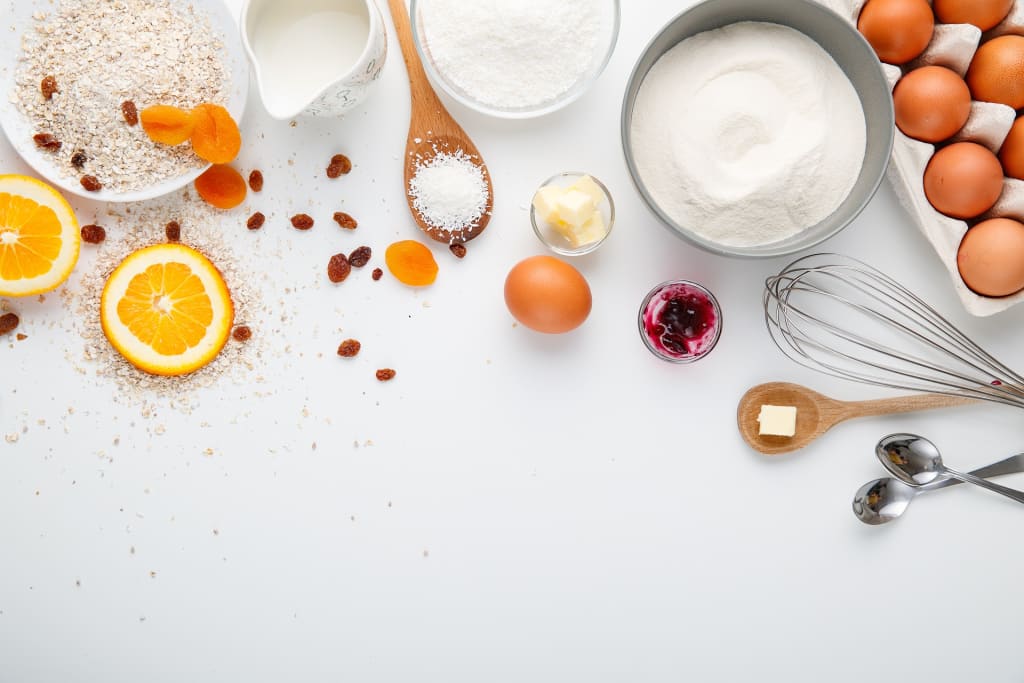Alternatives to sugar
Sugar alternatives

In industrialized countries, daily sugar consumption is very high. It is close to 100g of sugar per day per inhabitant, whereas it should not exceed 50g as part of a balanced diet, i.e. when the recommended daily calorie intake is between 1800 and 2600 calories (variable according to sex, weight, height, activity, etc.).
To satisfy its energy needs, the body requires a sugar called glucose.
This is not "classic" white sugar, which loses vitamins and minerals essential for good health after refining.
This white sugar, also known as sucrose, can also have harmful effects on health if consumed in excess, eventually leading to hyperglycemia or type 2 diabetes.
For the body to function properly, blood glucose levels must vary between 0.80 and 1.10 grams per liter of blood on an empty stomach, and between 1 and 1.40 grams in the 2 hours following a meal.
For all those who want or need to control their sugar intake, it's important to know that there are various alternatives to white sugar with varying glycemic indexes, i.e. with varying degrees of influence on blood sugar levels.
It's often said that sugar is like a drug. We consume so much sugar every day that it's hard to do without. As we all know, it's sometimes hard to resist the temptation to reach for the bottom of a box of cookies or a tub of ice cream.
Scientists at the University of California recently reported in the prestigious journal Nature that sugar has harmful characteristics in common with highly controlled and dangerous substances such as alcohol and tobacco.
• Artificial sweeteners
Synthetic sweeteners are accused of being harmful to health. Although they are chemically modified, they are strictly controlled.
Today, the various studies on the subject contradict each other. There is no evidence of any real danger to health, as long as ADIs (acceptable daily intakes) are not exceeded - a notion which, however, is rather vague and varies from one country to another.
Aspartame
Aspartame's sweetness comes from the combination of 2 amino acids. Its sweetening power is 180 times greater than that of sugar, even though it contains only 4 kcals per gram.
Presented in powder or tablet form, aspartame can be substituted for conventional sugar, preferably in cold preparations, since at high temperatures (100-110°C), aspartame loses its sweetening power.
10g aspartame = 100g sugar
Some health professionals accuse aspartame of being potentially toxic and carcinogenic, but no study has really shown this to be the case if consumption does not exceed 40 mg per kilogram per day (i.e. 18 cans of low-sugar soda for a 60kg person).
Saccharin
Saccharin retains its sweetening power when cooked, so it can be used in a wide range of dishes. Saccharin's sweetening power is 300 to 500 times greater than that of sucrose.
At present, saccharin is only available in pharmacies. Its consumption must not exceed 5 mg per kilo of body weight per day.
Cyclamate
Like saccharin, cyclamate can only be used as a food additive. It is therefore labelled as a "table sweetener", as no commercially available "processed" product may contain it. Also regulated, its consumption must not exceed 11 mg per kilo of body weight per day.
• Natural sweeteners
Stevia
Approved as a food additive in Europe since 2011, stevia is marketed in powder or liquid form.
This sweetener comes from the Stevia Rebaudiana plant. It provides no sugar or calories, although its sweetening power is 100 to 300 times greater than that of white sugar.
2g stevia = 100g sugar
Like aspartame, stevia can replace sugar in both cold and hot recipes. Unlike aspartame, it is extremely heat-stable for all forms of cooking and baking (180°C).
Xylitol or birch sugar
Extracted from birch bark, it has the advantage of having the same taste and sweetening power as white sugar, with a much lower glycemic index.
Xylitol can be used in any preparation, but you should be aware that when cooked, its sweetness increases.
100g xylitol = 100g sugar
The quantities of xylitol correspond to those of sugar, as it has exactly the same sweetening power.
If consumed in excess, xylitol may cause diarrhea. It is recommended not to exceed 50g per dose.
• Syrups
Agave syrup
Extracted from the Agava tequilana plant, agave syrup has a neutral taste, ideal for cooking.
Its sweetening power is greater than that of white sugar, and its glycemic index (15) is much lower than that of honey, helping to avoid insulin spikes. It is essentially composed of fructose, a sugar also found in fruit.
50g agave syrup = 150g sugar
Maple syrup
This syrup comes from boiling maple sap. With 1.4 times the sweetening power of white sugar, it is rich in B vitamins, proteins and minerals such as zinc, calcium, potassium and manganese, and has a lower glycemic index (65) than sugar (70).
Rice syrup
Rice syrup comes from the fermentation of brown rice. It behaves like a slow sugar in the body, avoiding insulin spikes. Its sweetening power is slightly weaker than that of white sugar, and its taste slightly more pronounced than agave syrup. Rich in vitamins and minerals, it tends to liquefy when cooked, making it more difficult to use in pastries.
Molasses
Produced from cane sugar, molasses has many properties. This dark-brown syrup is rich in minerals (2 tablespoons of molasses cover the daily requirement of iron), as well as B vitamins (B2 and B6). Its glycemic index is the same as that of sugar (70).
Yacon syrup
Little-known yacon syrup, which resembles caramel, is extracted from a Peruvian tuber. It's made from fructo-oligosaccharide, a sugar that doesn't penetrate the body and, as it isn't assimilated, doesn't cause insulin spikes. Yacon syrup is also rich in potassium and antioxidants.
25g yacon syrup = 150g sugar
• Other sugars
Honey
Although honey has the same glycemic index as sugar, it has fewer calories (64 kcals vs. 84 kcals for 20g). It also contains numerous antioxidants, vitamins and minerals.
Honey can therefore replace sugar in many recipes: pastries, hot drinks or even meats, for a sweet and savory finish.
50g honey = 100g sugar
Coconut sugar
Made from the sap of the coconut flower, coconut sugar is similar to brown sugar, and can be used in the same way. It has the advantage of a very low glycemic index: around 24.5.
Kittul
Kittul is extracted from the sap of the flower stalks of the Caryota Urens, a Ceylon palm. It is rich in minerals such as calcium and iron, as well as vitamins B1, B12 and C.
Rapadura
Rapadura is made from sugar cane. However, it is not refined, so it retains all its minerals and trace elements. Consumed in excessive quantities, it can cause the same diarrheal problems as sucrose.
Demerara
Demerara is also extracted from cane sugar. It takes the form of blond crystals coated in molasses. More fragrant than brown sugar, it is also richer in iron, magnesium, calcium, phosphorus, potassium and vitamins B and E.






Comments
There are no comments for this story
Be the first to respond and start the conversation.